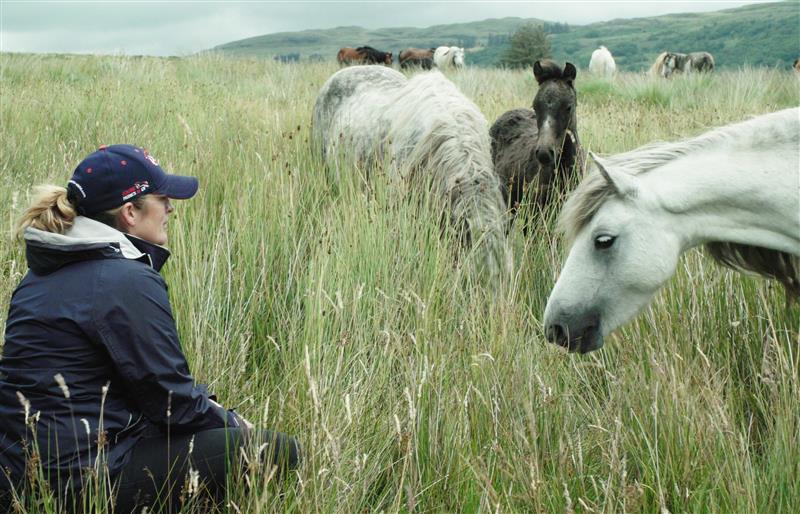Stereotypic behaviours are behaviours that horses develop when they don’t have their basic behavioural needs met or when they suffer from prolonged physical or emotional stress. These behaviours become coping mechanisms, and once established, horses will exhibit them in any situations that they find stressful. There are different types of stereotypic behaviours – for example, weaving, box walking, and crib biting. Historically, these were viewed as undesirable behaviours or ‘vices’ by owners.
Locomotor stereotypic behaviours including weaving and box walking. These commonly occur when a horse’s movement is restricted such as when they are stabled. There are also oral stereotypic behaviours. These include crib biting, which has been linked to stressful weaning practices and diets containing high amounts of sugar and starch, as well as restrictive management practices. Stereotypic behaviours such as weaving, box walking and crib biting are linked to altered brain physiology and release of hormones, such as dopamine
Did you know?
Dopamine is also known as the ‘happy hormone’. Once a habit forms that causes dopamine levels to increase, it can be difficult to stop the behaviour.
If a horse begins to display any stereotypic behaviours, it is important to try and determine the root cause. There are numerous potential causes, including restricted turnout, limited social contact, lack of forage in their diet, and insufficient chewing time.
Products aimed at physically preventing horses from performing stereotypic behaviours, including anti-crib biting collars and anti-weave grills for stables, should not be used. Management of stereotypic behaviours should never restrict the horse’s ability to perform the behaviours, as they are important coping mechanisms that help the horse deal with an inappropriate and stressful environment.
Instead, management of stereotypic behaviours should focus on minimising stress in the horse’s daily life and promoting the 3Fs: friends, forage and freedom. Where possible, horses should be turned out for as long as possible, ideally with at least one other horse. Forage, such as grass, hay or haylage should be provided as, this is not only important for gut health and nutrition, but horses that are unable to satisfy their foraging needs are more likely to develop behavioural issues. Where possible, stables should allow visual contact with other horses as a minimum, and ideally some form of physical contact so that they can participate in mutual grooming
Once established, behavioural intervention and management changes may reduce the incidence of the horse performing the behaviour, but it may never fully go away. For support in making management and lifestyle choices, speak to someone experienced with these behaviours such as a qualified equine behaviour professional.
To find out more about equine stereotypic behaviours, why not watch our webinar with Dr Sebastian McBride and Dr Andrew Hemmings.
Popular advice in Behaviour

Separation anxiety: training your horse to be on their own
Not sure how to prepare your horse to be left on their own or have a horse with separation anxiety? Check out our top tips.

Training: how do horses learn?
Explore how horses learn and the training methods that we can use to train our horses whilst prioritising their physical and emotional health and welfare.
Other advice categories
All webinar categories:
Call our Advice Line
+44 (0)1953 497 238Not found the advice or answer you were looking for here? Then our Advice Line is available during office hours, or you can email us on education@worldhorsewelfare.org to let us know what topics you were looking for.


